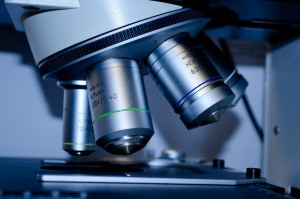- Calls to this hotline are currently being directed to Within Health or Eating Disorder Solutions
- Representatives are standing by 24/7 to help answer your questions
- All calls are confidential and HIPAA compliant
- There is no obligation or cost to call
- Eating Disorder Hope does not receive any commissions or fees dependent upon which provider you select
- Additional treatment providers are located on our directory or samhsa.gov
Becoming Involved in Research Studies as a Study

The Anorexia Nervosa Genetics Initiative (ANGI) is the largest and most rigorous genetic investigation of eating disorders ever conducted, and it is seeking participants1. The ultimate goal of the ANGI is to discover the specific gene(s) connected to anorexia and, thus, better treat it.
Anyone who has struggled with anorexia at any point in their lives can participate (and even some who haven’t) by providing a blood sample and participating in a 30-minute interview. Compensation is a $25 Amazon gift card — and knowing you are a part of an effort to cure understand an illness that’s the most common cause of death in young women2.
More Invasive Research Studies on Eating Disorders
Other studies are more invasive, like the Johns Hopkins Eating Disorder Program study to test the effectiveness of an undisclosed medication to treat anorexia. Researchers are recruiting adults with anorexia to participate in the 16-week study, during which time one group receives the medication and the other control group receives a placebo. Participants see a psychiatrist once a week. The program will pay participants $2503.
Research participants with an illness or disease participate to help others, but also to possibly receive the newest treatment and to have the additional care and attention from the clinical trial staff, according to the National Institutes of Mental Health (NIMH). Some people without insurance to cover nor funds to pay for treatment participate in research as a treatment alternative.
What the ANGI Group Wants to Accomplish

Most college women (94%) who participated in eating disorder research had no negative side effects from doing so4. “Overall, results indicated that body image and eating-disorder research is not distressing for the vast majority of participants,” the study concluded.
Understanding and Verifying Ethics
Still, it’s important to verify the ethics and purpose of any study before considering participation. Most, but not all, clinical trials in the United Sates are approved and monitored by an Institutional Review Board (IRB) to ensure risks are minimal and have potential benefits, according to NIMH.
These review boards consist of physicians, statisticians, and members of the community who ensure clinical trials are ethical and honor the rights of participants. Potential research participants should ask the sponsor or research coordinator whether the research was reviewed by an IRB, the NIMH suggests.
Questions to Ask During Research Studies
If you’re considering participation in a study, here are some helpful questions to ask:
The Study
- What is the purpose of the study?
- Why do researchers think the approach may be effective?
- Who will fund the study?
- Who has reviewed and approved the study?
- How are study results and safety of participants being checked?
- How long will the study last?
- What will my responsibilities be if I participate?
Possible Risks and Benefits
- What are my possible short-term benefits?
- What are my possible long-term benefits?
- What are my short-term risks, such as side effects?
- What are my possible long-term risks?
- What other options do people with my disease have?
- How do the possible risks and benefits of this trial compare with those options?
Participation and Care
- What kinds of therapies, procedures and /or tests will I have during the trial?
- Will they hurt, and if so, for how long?
- How do the tests in the study compare with those I would have outside of the trial?
- Will I be able to take my regular medications while in the clinical trial?
- Where will I have my medical care?
- Who will be in charge of my care?
Personal issues
- How could being in this study affect my daily life?
- Can I talk to other people in the study?
Cost Issues
- Will I have to pay for any part of the trial such as tests or the study drug?
- If so, what will the charges likely be?
- What is my health insurance likely to cover?
- Who can help answer any questions from my insurance company or health plan?
- Will there be any travel or child care costs that I need to consider while I am in the trial?
– Cancer.gov
To find research studies, visit the U.S. National Institutes of Health resource www.clinicaltrials.gov.
References:
- UNC Center of Excellence for Eating Disorders. (n.d.). Retrieved July 1, 2015, from http://www.med.unc.edu/psych/eatingdisorders/our-research/angi.
- Get the facts on eating disorders. (n.d.). Retrieved July 1, 2015, from https://www.nationaleatingdisorders.org/get-facts-eating-disorders.
- Volunteer for research. (n.d.). Retrieved July 12, 2015, from http://www.hopkinsmedicine.org/psychiatry/specialty_areas/eating_disorders/research.html.
- Murphy M., Edwards, K., Merrill, J. & Gidycz, C. (2011) Undergraduate Women’s Reactions to Body Image and Eating Disorder Research, Accountability in Research: Policies and Quality Assurance, 18:1, 55-69
About the Author:
Leigh Bell holds a Bachelor of Arts in English with minors in Creative Writing and French from Loyola Marymount University in Los Angeles. She is a published author, journalist with 15 years of experience, and a recipient of the Rosalynn Carter Fellowship for Mental Health Journalism. Leigh is recovered from a near-fatal, decade-long battle with anorexia and the mother of three young, rambunctious children.
Last Updated & Reviewed By: Jacquelyn Ekern, MS, LPC on July 31st, 2015
Published on EatingDisorderHope.com
